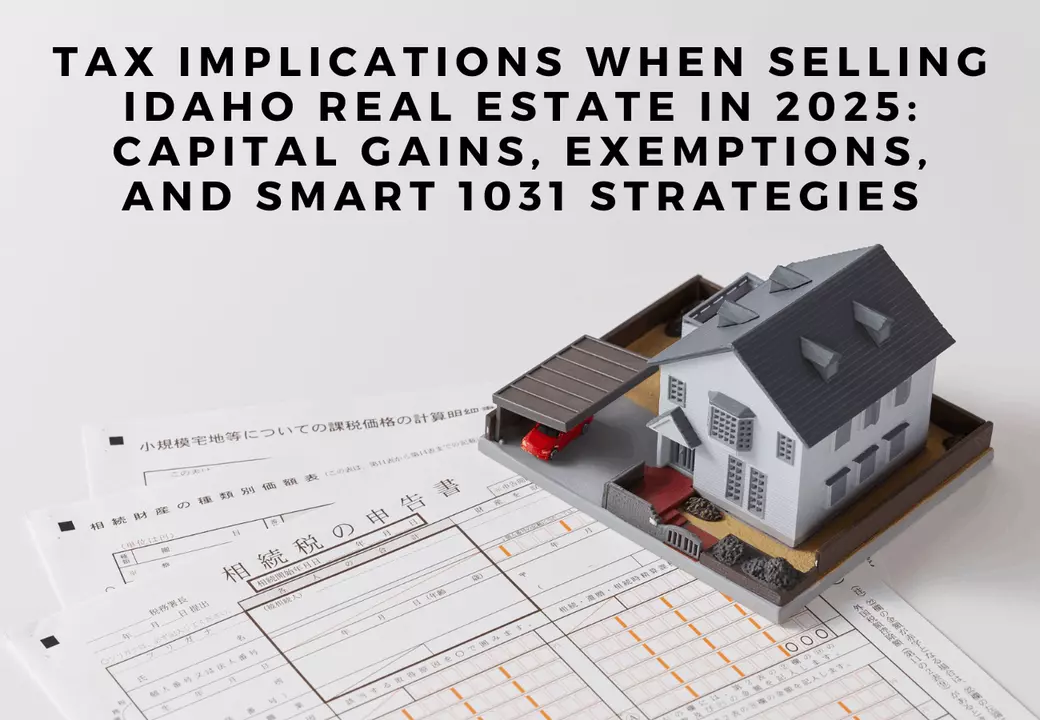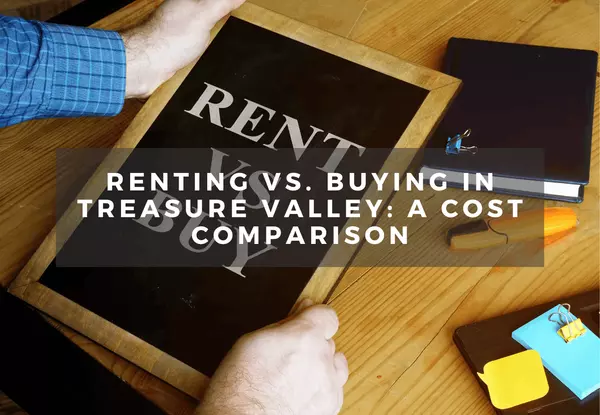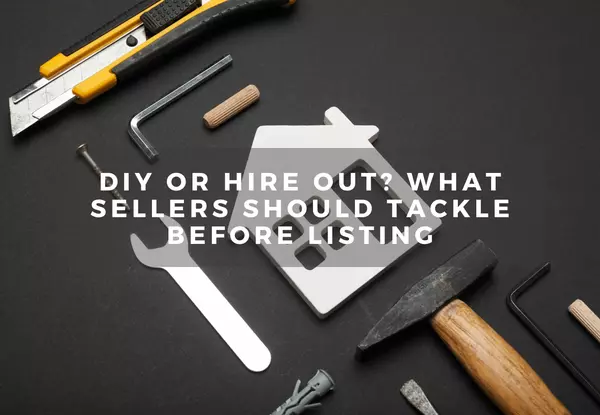Tax Implications When Selling Idaho Real Estate in 2025: Capital Gains, Exemptions, and Smart 1031 Strategies

Selling Real Estate in Idaho? Know the 2025 Tax Impacts Before You Close
Selling a home or investment property in Idaho can lead to big financial gains—but it can also lead to a big surprise when tax season rolls around. Whether you’re cashing out equity, downsizing, relocating, or selling a rental, it’s important to understand how the 2025 tax laws impact your bottom line.
This guide will walk you through capital gains taxes, primary residence exclusions, 1031 exchange strategies, and tips for planning ahead—so you can keep more of your hard-earned profit in your pocket.
Disclaimer: This is not tax advice. Always consult your CPA or tax professional for guidance on your specific situation.
What Is Capital Gains Tax?
When you sell real estate for more than you paid (plus qualified improvements and closing costs), the IRS considers that a capital gain. In 2025, capital gains are still taxed based on how long you owned the property:
-
Short-term capital gains (less than 1 year): Taxed as ordinary income (your federal tax bracket)
-
Long-term capital gains (more than 1 year): Taxed at 0%, 15%, or 20%, depending on your income level
Example:
You bought a home in Boise for $400,000 in 2020, and you sell it in 2025 for $650,000. Your profit is $250,000—minus selling costs and improvements. This gain is considered long-term, and you may owe 15% or 20% depending on your total taxable income.
Exemptions for Primary Residences
The good news? If the home you’re selling has been your primary residence, you may qualify for a significant capital gains exclusion under Section 121 of the IRS code.
You Can Exclude:
-
Up to $250,000 of gain if you’re single
-
Up to $500,000 if you’re married filing jointly
You Must:
-
Have owned and lived in the home for at least 2 out of the last 5 years
-
Not have claimed the exclusion on another home sale in the past 2 years
What Counts Toward the Exclusion?
-
Sale of a single-family home, townhome, or condo used as your primary residence
-
You can include certain improvement costs (remodels, new HVAC, etc.) to reduce your taxable gain
If you qualify, this exclusion can wipe out the capital gains tax entirely.
What If the Home Was a Rental or Vacation Property?
Rental Properties
If you’ve been renting out the property—and not living in it as a primary residence—you likely don’t qualify for the Section 121 exclusion. Your gain will be taxed as a long-term capital gain, and depreciation recapture rules apply.
Depreciation Recapture
For every year you took depreciation on the property (typically $3,000–$10,000/year depending on value), the IRS “recaptures” that amount and taxes it at a higher rate—25%, even if you’re in a lower bracket.
Example:
You’ve taken $40,000 in depreciation over 10 years. You’ll owe $10,000 in taxes (25% of $40,000) just from recapture, even before capital gains tax is calculated.
Using a 1031 Exchange to Defer Capital Gains
A 1031 exchange allows you to defer paying taxes on capital gains from the sale of investment or business property—as long as you reinvest the proceeds into a "like-kind" property.
This is a powerful tool for real estate investors looking to grow their portfolio while delaying (or potentially avoiding) capital gains taxes.
1031 Exchange Rules for 2025
To qualify, you must:
-
Exchange investment property (not your primary home)
-
Identify a new property within 45 days
-
Close on the replacement property within 180 days
-
Use a qualified intermediary (QI) to handle funds—you cannot touch the money
What Qualifies as “Like-Kind”?
Despite the name, “like-kind” is broad in real estate. You can exchange:
-
A rental house for a multi-unit apartment
-
Land for a rental property
-
Commercial for residential rental (and vice versa)
You cannot exchange U.S. property for international property or use the exchange for a personal home.
Idaho-Specific Tax Considerations
While capital gains are a federal tax issue, Idaho also taxes capital gains as regular income. In 2025, Idaho’s income tax is a flat 5.8%. This applies to gains not excluded under federal rules or deferred via 1031.
Property Tax Notes
When you sell real estate in Idaho:
-
You’ll owe prorated property taxes at closing
-
Buyers often negotiate for sellers to cover the full year’s taxes as part of the deal
-
Property taxes do not affect capital gains but may be deductible in the year of the sale (check with your CPA)
Smart Strategies to Minimize Taxes
1. Keep Good Records
Track your original purchase price, closing costs, capital improvements, and depreciation. These reduce your taxable gain.
2. Time the Sale Right
If you’re close to hitting the 2-year primary residence rule—or your income will drop next year—timing your sale could shift you into a lower tax bracket and reduce or eliminate your capital gains liability.
3. Convert Rental to Primary
If you’ve lived in a rental for 2 of the last 5 years, you may qualify for the Section 121 exclusion even if it was previously a rental. This can reduce both capital gains and depreciation recapture.
4. Partial Exclusion
If you’re forced to sell due to job change, health reasons, or hardship, you may qualify for a partial exclusion (e.g., $125K instead of $250K). It’s prorated based on how long you lived there.
What About Selling Inherited or Gifted Property?
Inheritance
If you inherit a property, your cost basis is “stepped up” to the fair market value at the time of the previous owner’s death. This means:
-
You only owe capital gains on the difference between the sale price and the new stepped-up value
-
Many heirs owe little or no tax when selling shortly after inheritance
Gifts
If a property was gifted to you, you assume the original cost basis. This can result in much higher capital gains if the property has appreciated significantly.
Selling Investment Property in 2025: Buy-and-Hold vs. Exit
If you’re holding multiple properties in the Treasure Valley and looking to sell:
-
A 1031 exchange allows you to reinvest into a higher-performing asset
-
A seller-financed sale may spread your gains (and taxes) across years
-
A cash-out refi can offer liquidity without triggering a taxable event
Not sure which path is best? It may come down to your income level, timeline, and whether you plan to reinvest. This is where we coordinate with CPAs, financial planners, and lenders to help you decide the smartest strategy.
Final Thoughts
Selling a home or investment property is about more than just price—it's about net proceeds, and taxes play a big role in that. Whether you’re a homeowner with big equity or an investor looking to scale, understanding the tax rules can help you plan your next move strategically.
Every situation is different, and while I’m not a CPA, I’ve helped dozens of clients sell, exchange, or roll equity into smarter deals. If you're thinking about selling in 2025, let's talk early so we can align your real estate goals with your tax strategy.
Want help planning your next real estate move?
📲 Call or text Curtis Chism at (208) 510-0427
📧 Email: info@chismteam.com
📥 Ready to relocate remotely? Download our Boise Relocation Guide
Categories
Recent Posts










